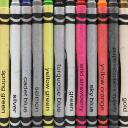Yahoo Answers is shutting down on 4 May 2021 (Eastern Time) and the Yahoo Answers website is now in read-only mode. There will be no changes to other Yahoo properties or services, or your Yahoo account. You can find more information about the Yahoo Answers shutdown and how to download your data on this help page.
In English, we now have the words hijabi and niqabi? So in the plural can we say hijabis?
Can we say niqabis? I would like to know, instead of saying, "When I walk through the local mall, I see several ladies wearing hijab" can I say instead "I see several hijabis"?
Thank you.
I already know what the words mean. Here in Quebec there is a big controversy over face veils and hijabs. I would like to know the plural form of hijabi and niqabi, thanks.
Choco, there is a proposed charter of secularism in Quebec, but we're having a provincial election on Apr. 7. Religious clothing is legal for now, and the charter may fall through if the Parti quebecois loses the election.
I don't have the capability to research mid eastern languages, so I'll have to let this question go to general voting.
7 Answers
- RuchjatLv 77 years agoFavourite answer
Salam Yes according to me you can say hijabis and niqabis in plural if you met more than one Muslim woman who wear hijab without face veil or niqab with face veil
- chococheesecakeLv 57 years ago
I thought Quebec had officially banned religious headwear? But yeah definitely there is a huge disliking of niqab and hijab there...taking away religious freedom of women, democrazy for ya. smh
It is ok to say hijabis and niqabis. But these terms are made up so they do not have plurals in Arabic of course this is in English.I feel it is better to say women wearing hijab/niqab but I do not find it disrespectful if you were to call me a Hijabi.
- 7 years ago
Hijab and niqab are arabic words. In English you translate into veil, head veil or face veil.
- Anonymous7 years ago
In English the usual thing is to say hijab or niqab. Plural is rarely seen, but usually just with an -s at the end.
- Anonymous7 years ago
We call them goni billahs



